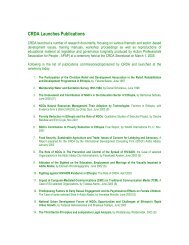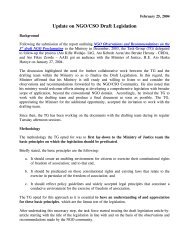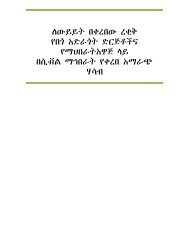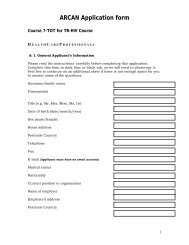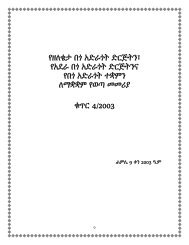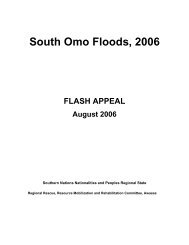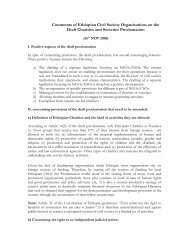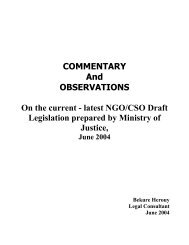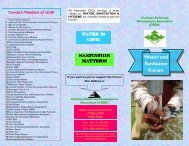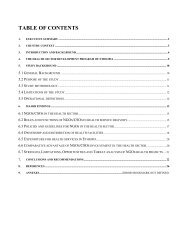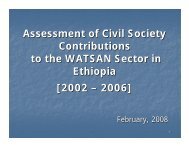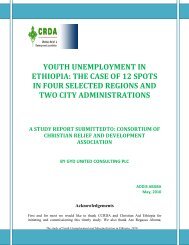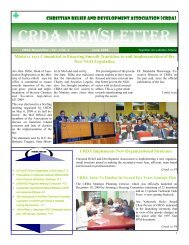Ethio-Japan Partnership Seminar Proceeding - CRDA Ethiopia
Ethio-Japan Partnership Seminar Proceeding - CRDA Ethiopia
Ethio-Japan Partnership Seminar Proceeding - CRDA Ethiopia
You also want an ePaper? Increase the reach of your titles
YUMPU automatically turns print PDFs into web optimized ePapers that Google loves.
1. Accelerating Economic Growth<strong>Ethio</strong>pia is the second most populous country in Sub-Sahara Africa with nearly 80 millionpeople and one of the poorest country with the per capita GDP of US$130 (World Bank,2008). <strong>Ethio</strong>pian government has been implementing the Plan for Accelerated andSustainable Development to End Poverty (PASDEP) which focuses on pro-poor sectorssuch as rural development, food security, water, health, education and human resourcedevelopment. It also provides support to private sector and has created conduciveenvironment for increased investment. <strong>Ethio</strong>pian civil society is taking a large part ofdevelopment in the areas of food security, health and water, education, capacity building,infrastructures and emergency operation.In recent years, <strong>Ethio</strong>pia is experiencing substantial economic growth. The growthhowever has not translated into better livelihoods of the majority of the people andmany still suffer from poverty. <strong>Ethio</strong>pian civil society reckons that any economicdevelopment should consider the grassroots people by providing them with microfinance,market oriented production improvement, opportunities to diversify incomesources, etc. The economic gap within the country is one of the primal concerns ineconomic development and urban poor should not be overlooked.The recommendations to the <strong>Japan</strong>ese Government are as follows: Allocate fund for prop-poor projects such as micro-finance, income generation andothers addressing grassroots needs. Consider the need to move from project to programme based activities for holisticdevelopment approach and maximum impact. Support the creation of a forum between the government and civil society. Establish a forum that will help networking between <strong>Japan</strong>ese ODA and <strong>Ethio</strong>piancivil society. Develop flexibility in ODA schemes such as extending project periods, raising theODA ceiling and being more responsive to changes of situation. Include technical cooperation in its support to civil society Understand the local reality and to be flexible in grant policies, procedures, fundingand monitoring development programs/projects. Closer collaboration with civil society in ODA programs.2. Human SecurityThe issue of human security should consider the need of economic growth, investmentand environment protection. It also includes dignity, and people-centred policy anddevelopment. Human security is all about economic, political social and cultural rights ofthe society and respect for marginalised people such as women, minority, the disabled,the young and the eldery. MDGs can not be realised without human security.2-1. Millennium Development Goals<strong>Ethio</strong>pia, a country of more than 80 million people and as one of the poorest nations inthe world, shares most socio-economic catastrophes such as a high poverty rate, lowliteracy rate, high child mortality rates and HIV/AIDS. It is stressed that a rights-basedapproach is essential to achieving the MDGs and a sense of responsibility andpartnership, mutual respect and recognition should be developed among partners.Hence the civil society should be recognised in implementing development programs asan equal partner to government.To ensure that the grassroots people reach the the MDGs level, civil society can: Empower people and community to be more assertive. Support community to monitor the government’s programme towards MDGs.36



